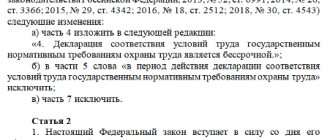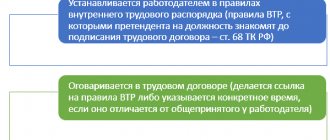Home » Inheritance » Establishing the fact of death in court
4
The disappearance of a person in peacetime, during military operations or work in remote territories, in potentially dangerous places is not only stress for relatives, but also problems associated with establishing the fact of death in order to gain the right to inheritance. There are cases when, in a state of emotional overstrain, while attending to a funeral, people do not receive the necessary documents. This entails difficulties with acquiring an inheritance, registering pensions, and benefits. It is necessary to understand how and in what situations the fact of death is subject to judicial determination.
When is it necessary to establish the fact of death?
In legal practice, there are several types of cases related to the inability of interested parties to obtain documents about the fact of a person’s death:
- Declaring a citizen dead or missing. However, there is no direct evidence that the person died.
- Establishing the fact of death, if the circumstances and time are known, but the registry office does not issue the corresponding certificate. Reasons - lack of a medical report, loss of personal identification documents and others, leading to refusal to issue a death certificate.
- Establishing the fact of registration of death. In this case, the task is to prove the issuance of a death certificate by the civil registry office. This is necessary if a document is lost or the deadline for applying for a certificate is missed.
- Establishing the date of death as a legally significant fact. If, for example, relatives did not know about the death, but the person died and was at home (in the morgue) for some time, going to court is necessary to establish a legally significant fact - the date of death (Article 264 of the Code of Civil Procedure of the Russian Federation).
In the first case, the plaintiff has an assumption that a relative or close person died due to a long absence or a combination of circumstances that could lead to death. Evidence and the involvement of witnesses will be required for a citizen to be declared dead.
Establishing the fact of death is associated with the presence of irrefutable evidence of death, and not assumption.
To prove the fact of registration, it is sufficient that the judicial authorities send a request to the archives of the registry office for the re-issuance of the document.
An application to the court to establish the fact of death is necessary if the registry office refuses registration due to the lack of a medical examination or other necessary documents.
Arbitrage practice
As practice shows, in claims to establish the fact of death, a positive decision is made only if there is adequate evidence.
Example. The above statement was received by the court. The circumstances of the case are that the applicant’s son died of cancer. Due to emotional shock, the father was unable to contact the registry office. As a result, he did not receive a death certificate. On the day of his death, the son was divorced. The young man has a son. However, the child’s mother does not allow the grandfather to communicate with him. The parents of the deceased citizen had to come to terms with the decision of his ex-wife. After some time, the woman moved to live in another country. Soon the grandson returned to his homeland. The guy expressed a desire to live with his grandfather. Almost immediately the grandson began studying. Then the question arose about receiving a survivor's pension. An appeal to the registry office did not yield any results. Employees of the vital registration authority advised them to go to court. Witnesses confirmed the applicant's testimony. A separate proof of a legal fact is a certificate from the local Administration. It confirms the fact and cause of death of the applicant's son. Separately, the applicant provided a photo of a tombstone at the burial of a relative. The court granted the application (Decision of the Kazbekovsky District Court of the Republic of Dagestan dated 02.02.2012).
The court's decision is based on written evidence and testimony of the citizen's death. A photo of the burial site is also one of the relevant evidence.
Example. The court received an application to establish the fact of death. The circumstances of the case are that the applicant’s son committed suicide. An appeal to the registry office did not yield any results. The reason for refusal is that the death certificate has already been issued to another person. The applicant needs the document to remove his son from the registration register. Proof of the death of a citizen is a certificate from the village Administration. The court confirmed the fact that the deceased subject was buried by another person. Additional evidence is the decision to terminate the criminal case against the deceased citizen. Interviewed witnesses confirmed the circumstances of the death. The court satisfied the stated requirements (Decision of the Sovetsky District Court of Makhachkala dated June 26, 2012).
Purpose of establishing the fact of death
The legal consequences of establishing the fact of death are the same as in the case of death with the subsequent receipt of the appropriate certificate. Satisfaction of the claim by the court entails:
- opening of an inheritance mass (Article 1113 of the Civil Code of the Russian Federation);
- termination of obligations inextricably linked with the death of the debtor in accordance with Art. 418 of the Civil Code of the Russian Federation (payment of alimony, compensation for harm to health; performance of musical works; creation of scientific samples and other personal obligations);
- termination of marriage;
- the emergence of the right to receive a pension in connection with the loss of a breadwinner, to receive benefits and subsidies.
A death certificate is a necessary document when contacting a notary to open an inheritance case.
The interested party may be the surviving spouse. A marriage is considered legal until the other half is declared dead. Parents of descendants will not be able to apply for survivor benefits. The probate of a will is also possible only upon confirmation of the fact of death.
What confirms the fact of death
The fact of death is confirmed only by a medical certificate. The procedure for its issuance is regulated by Letter No. 14-6/10/2-178 dated January 19, 2009. Document form - No. 106/u-08.
In the absence of a certificate, the registry office will not issue a death certificate.
A medical certificate of a given type can be provided by a hospital doctor, paramedic or midwife at a local hospital.
The certificate is issued to close or distant relatives of the deceased, their representatives or law enforcement agencies. The medical certificate stub remains with the organization or doctor who issued the certificate. Its shelf life is 1 year.
The document cannot be completed “in absentia”. The fact of death must be established personally by a doctor, paramedic, or obstetrician. If it is necessary to identify an unidentified body, a certificate will be issued by a pathologist.
To obtain a document, eligible citizens must provide:
- Passport of the deceased and your identity card. The data is necessary to fill out the certificate, as well as the counterfoil, where the recipient’s full name, series and passport number are indicated.
- Outpatient card of the deceased, health insurance policy if available.
If it is impossible to obtain a medical certificate, but there is information about the death of a citizen, you must go to court. The issued decision is submitted to the registry office for registration of a death certificate.
How to establish the fact of death in court: step-by-step instructions
The algorithm of actions is as follows:
Step 1
Contacting a medical organization and receiving a written refusal to issue form No. 106/u-08, or the registry office, where they will sign the refusal to provide a death certificate.
According to Art. 265, an appeal to the court is accepted only if it is impossible to establish a fact of legal significance otherwise.
Step 2
Searching for evidence of the fact of death, collecting documents.
You must provide:
- Original and photocopy of the passport of the deceased and interested persons.
- Documents confirming the degree of relationship: birth certificate, marriage registration.
- Receipt (cheque) for payment of state duty.
- Certificates issued by a doctor at the scene of the incident or a pathologist.
- Official data about the accident that occurred: fire, explosion, disaster, flood.
- Testimony of witnesses, footage from the scene, all information that is relevant to the case.
The documents include a receipt for payment of the state duty. Establishing the fact of death is a matter of special proceedings, therefore the amount to be paid in accordance with Art. 333.19 clause 1 clause 8 of the Tax Code of the Russian Federation is equal to 300 rubles.
Step 3
Writing an application. What to pay attention to:
- the name of the court and details of the interested person must be indicated in the header of the document;
- the text of the claim describes the circumstances under which the death occurred;
- witnesses who can influence the court's final decision are indicated;
- it is specified for what purpose the recognition of a citizen as deceased is required (inheritance, receipt of benefits and other reasons);
- indicate the need to establish the date of death;
- All documents provided to prove the relationship and the fact of death should be listed.
The claim can be printed or written by hand using black or blue ink.
All collected evidence and necessary documents must be attached to the application.
Based on the data received, the court makes one of the following decisions:
- recognize a citizen as dead;
- refuse due to lack of evidence.
The decision is appealed to the appellate court.
Deadlines for appeal and opening of inheritance
There is a fine line between cases of establishing the fact of death and declaring the deceased, which is distinguishable when collecting evidence.
A person can only be declared dead on the basis of assumptions based on his absence. In the Civil Code of the Russian Federation, Art. 45 deadlines are set:
- 5 years - if the citizen does not appear at his place of residence and there is no information about his stay;
- 3 years - if the above conditions are accompanied by the presence of life-threatening circumstances;
- 6 months - if death occurred as a result of an accident.
Military personnel who are missing in action are declared dead 2 years after the end of hostilities.
Declaration of death is the establishment of “legal death” (Article 262, paragraph 1, paragraph 3 of the Code of Civil Procedure of the Russian Federation). In fact, the citizen may be alive. In this case, the day of death is considered the day the legal decision to declare the person dead comes into force. The calculation of the six-month period for accepting an inheritance begins with it.
Establishing the “fact of death” is the registration of an actually occurring event that is not subject to doubt. In the event of life-threatening circumstances, the court indicates in the decision the day of the expected death.
Example. If during a shipwreck the citizen was a passenger on the ship, no body was found as a result of search operations, and there is no survivor among the survivors, the court will declare him dead.
If a passenger died in front of witnesses, the fact of death is established with a certain date.
Based on the court decision, the registry office records the death and issues a corresponding certificate.
The process of declaring a citizen dead
According to the regulatory provisions of Article 45 of the Civil Code of the Russian Federation, a citizen can be declared dead only by a court decision, subject to the following conditions:
- the deadline has passed (5 years - in general cases and 6 months - if there are grounds to believe that the disappearance was caused by circumstances that threatened the life of the person in question, or by the expected consequences associated with accidents);
- all possible measures were taken to search for the missing person, and the use of such measures to obtain information about the whereabouts did not produce the expected results;
- the missing person has no justified motives for a long absence from his place of residence, and there is no reason to assume that the disappearance was caused by the deliberate actions of the missing citizen due to certain reasons (for example, hiding from the law and responsibility, unwillingness to pay alimony and debts, etc.) .
A shortened time period (6 months) for declaring the legal status of the deceased is used, most often, when a person is in the area of man-made, natural disasters and anomalies, during natural disasters and emergency circumstances.
Part 2 of Article 45 of the Civil Code of the Russian Federation determines a different procedure for calculating the time limits for declaring someone dead in connection with being in a war zone. The calculation procedure is carried out not from the date of the last information about the location, but from the moment the combat operations ended.
This situation is due to the need for a long return from the scene of hostilities to the place of residence and rather complex procedures for establishing the fact of biological death of such persons.
According to the comments of Article 45 of the Civil Code of the Russian Federation, declaring a citizen dead in legal consequences is equivalent to recognizing biological death in the usual manner.
Establishment of the official date of death by the court is necessary for certain legal transactions:
- procedures for opening the inheritance of a deceased citizen in accordance with Article 1113 of the Civil Code of the Russian Federation;
- establishing the day from which an individual loses legal capacity (Part 2 of Article 17 of the Civil Code of the Russian Federation);
- the process of making an entry by the registry office about the occurrence of death in the civil registration book.
Cancellation of a court decision
When the fact of death is established, a citizen cannot show up, since his death is reliably known, and those recognized as dead can make themselves known. In this case, the court cancels the previously made decision. A citizen who turns out to be alive has the right to demand the return of property that was distributed by inheritance. An exception is money and bearer securities (Article 302 of the Civil Code of the Russian Federation).
If it is proven that purchasers of inherited property through compensated transactions knew about the surviving testator, they will be obliged to return the inheritance or reimburse its value.
Any property donated free of charge is also subject to return. The time of appearance of a citizen considered dead does not matter.
It is necessary to distinguish between the concepts of establishing the fact of death, its registration and recognizing a person as dead. In all cases, you need to go to court. Why is this necessary? First of all, to protect the interests of heirs under law and will. A property inheritance case can only be opened after a death certificate is provided. Until this moment, it is impossible to dispose of the benefits of the deceased.
If the court does not satisfy the claim, you should immediately contact a lawyer, since an appeal is possible only within 10 days after the decision is made. If you miss the moment, you can be left without rights to inheritance. When to file a claim, what evidence to provide, how to achieve a positive decision - the lawyers of the ros-nasledstvo.ru portal will help you figure it out in each specific case.
FREE CONSULTATIONS are available for you! If you want to solve exactly your problem, then
:
- describe your situation to a lawyer in an online chat;
- write a question in the form below;
- call Moscow and Moscow region
- call St. Petersburg and region
Save or share the link on social networks
- FREE for a lawyer!
Write your question, our lawyer will prepare an answer for FREE and call you back in 5 minutes.
By submitting data you agree to the Consent to PD processing, PD Processing Policy and User Agreement
Useful information on the topic
24
Entering into an inheritance through the court or how to file a claim for recognition of the right to inheritance
The standard order of inheritance is a simple, strictly regulated procedure where...
48
Who repays the loan in the event of the borrower's death?
The basic law regulating relations regarding the transfer of property rights from the testator...
8
Tax on inheritance from close relatives in 2021
In Art. 217 of the Tax Code, material benefits received as a result...
30
Opening an inheritance case
Opening an inheritance case is the first and mandatory stage of accepting property...
34
Terms of inheritance after death according to law
The procedure for receiving an inheritance or a share in it after the death of someone...
19
What is better, a deed of gift or a will for an apartment?
After choosing the next owners for your property, it’s time to decide...
Grounds for refusal
The notary has the right to refuse to open an inheritance to the applicant if he has reasons for this. Most often they are associated with the absence of one document from the package required for review. Sometimes problems are associated with claims from relatives who equally claim the property of the commorients.
If a notary refuses the process of opening an inheritance without good reason, it is recommended to contact a lawyer.
The order of inheritance after the deceased has been relevant since Roman law and to this day. For the first few centuries, the presumption was established depending on the age of the deceased person. In modern Russian law there are no such presumptions, and the court makes a decision on the basis of factual evidence related to the simultaneous death of loved ones.
Since commorients, from the moment of their death, lose the right to inherit property, then it passes to their closest heirs or the persons specified in the will.
The classification has already been determined by law, and according to it, inheritance passes as follows:
- first branch: parents, spouses and children;
- grandchildren and granddaughters;
- nephews and cousins.
To establish the order and priority of inheritance, it is necessary to know the moment of death of the commorients. In this regard, the grounds for entering into inheritance will be determined.









